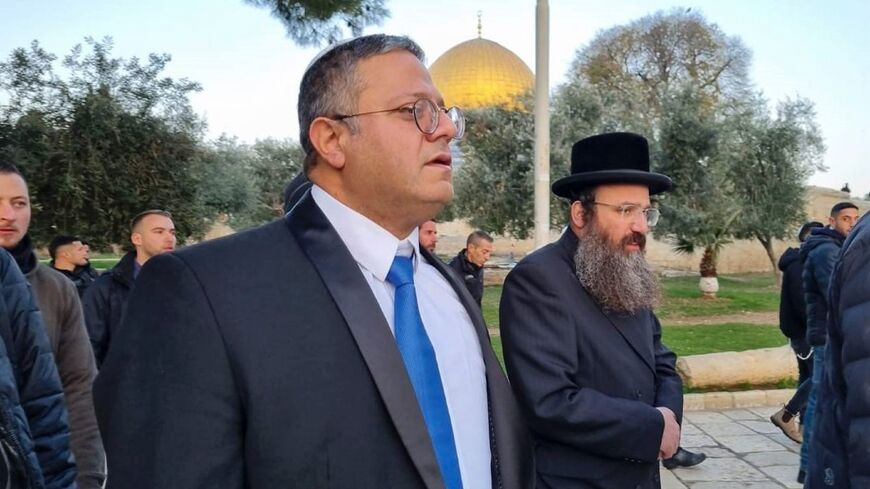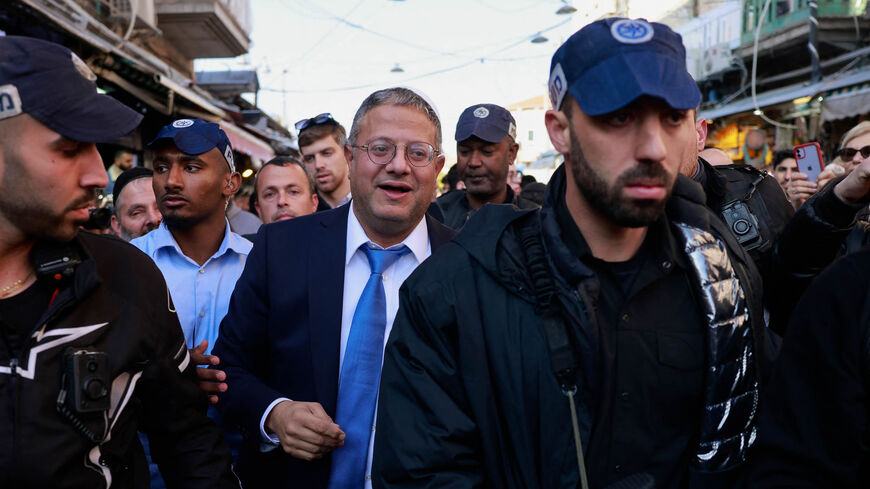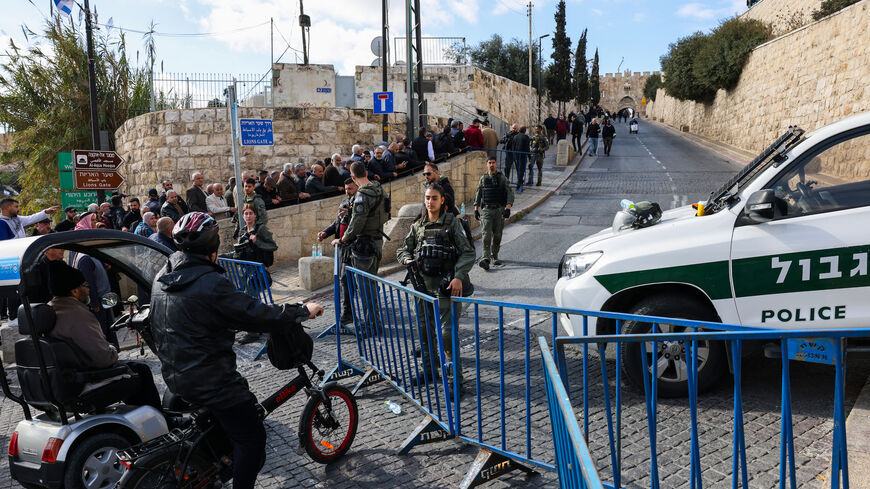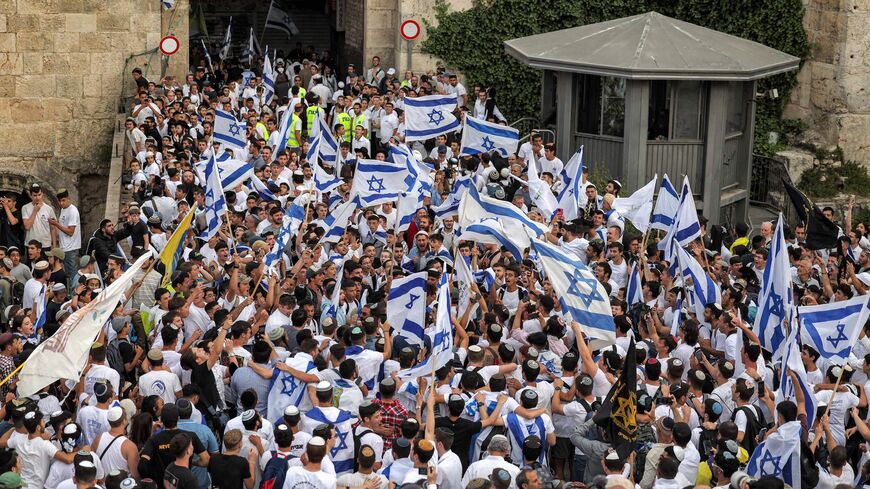UAE summons Israeli envoy over Jerusalem march, provocations
The United Arab Emirates has summoned Israel’s ambassador over recent tensions and violence in east Jerusalem, marking the first such diplomatic protest by the Gulf state since 2022.
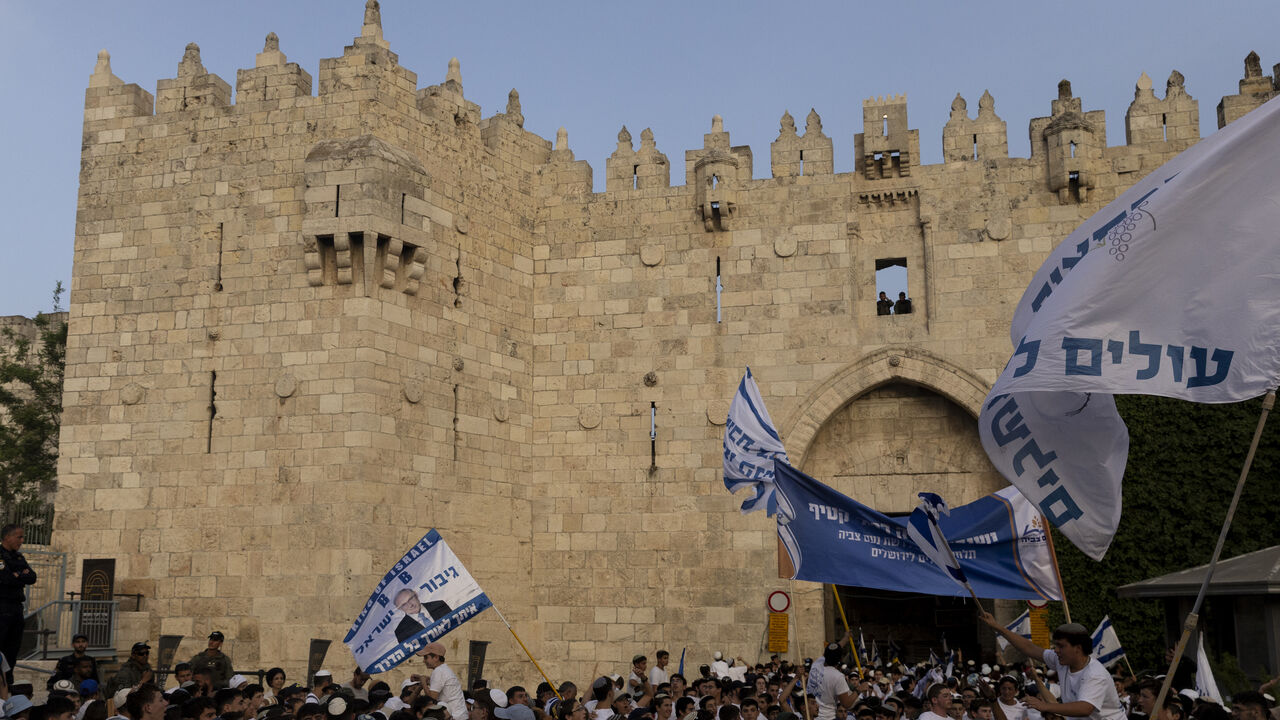
Following chaotic scenes in east Jerusalem during an Israeli rally, the United Arab Emirates summoned Israel’s ambassador on Wednesday to register a formal protest over what it described as repeated violations against Palestinians.
The UAE Ministry of Foreign Affairs summoned Israel’s ambassador to the Gulf state, Yossi Avraham Shelley, to condemn “violations against the Palestinian people that took place in the courtyard of Al-Aqsa Mosque and in the Muslim Quarter of the Old City,” according to a statement from the ministry.
The UAE “stresses that the continued attacks by Israeli extremists and their incitement to hatred and violence constitute a systematic extremist campaign” against the Palestinian people and the international community and called on the Israeli government to assume responsibility for these acts and hold perpetrators accountable “without exception to ministers and officials.”
In April of 2022, the UAE summoned the Israeli ambassador after similar clashes at Al-Aqsa left 152 Palestinians injured.
The UAE's move follows violent scenes in east Jerusalem on Monday during the annual Flag March, during which far-right Israeli demonstrators reportedly assaulted Palestinians and clashed with journalists and fellow Israelis. The march, held to mark Israel’s 1967 takeover of east Jerusalem, drew tens of thousands and was attended by far-right officials including National Security Minister Itamar Ben-Gvir and Minister of the Negev and Galilee Yitzhak Wasserlauf as well as several other Knesset members.
During the march, hundreds of Israelis, accompanied by police, entered the Al-Aqsa compound, drawing condemnation from Jordan, Saudi Arabia, Qatar and other regional governments.
Earlier that day Ben-Gvir, alongside Wasserlauf and Knesset members Yitzhak Kroizer and Zvi Sukkot, ascended the Temple Mount and raised the Israeli flag at the holy site.
ח"כ סוכות השתחווה והניף דגל ישראל בהר הבית: "הר הבית בידינו" pic.twitter.com/yD1SucGtB2
— חזקי ברוך (@HezkeiB) May 26, 2025
Al-Aqsa Mosque, located in Jerusalem’s Old City, is the third holiest site in Islam and sits atop the Haram al-Sharif, a 35-acre compound that is also the holiest site in Judaism, known to Jews as the Temple Mount.
Under a longstanding status quo agreement, non-Muslims are permitted to visit the site but not to pray there. Repeated visits by Israelis and Israeli politicians under police protection are viewed by Palestinians and many in the Muslim world as attempts to alter that arrangement, sparking tension and occasionally violence in Jerusalem and across the occupied West Bank.
A small group of demonstrators including Knesset member Yulia Malinovsky also entered a UNRWA compound in east Jerusalem, according to Roland Friedrich, UNRWA’s West Bank director.
At approximately midday today, a group of Israelis led by a Member of Knesset and accompanied by Israeli media entered without authorisation into UNRWA’s compound in Sheikh Jarrah, #EastJerusalem.
— Roland Friedrich (@GRFriedrich) May 26, 2025
The group asserted they were “liberating” the “former UNRWA headquarters” on the… pic.twitter.com/VcvZzuRk5y
The UAE was the first Gulf country to normalize relations with Israel under the 2020 Abraham Accords, yet ties have become increasingly strained due to the ongoing conflict in Gaza, with the UAE condemning Israeli military actions and calling for the resumption of humanitarian aid. Notably, Israeli Prime Minister Benjamin Netanyahu has yet to be officially received in Abu Dhabi, underscoring the limits of the warming relations amid persistent regional disputes.
